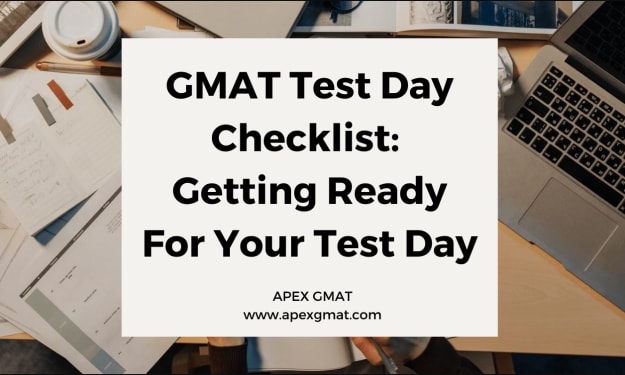
If you are planning on applying for an MBA or EMBA program, and are a busy professional, you probably had the chance to familiarize yourself with the EA exam. Today, we are going to focus on the EA verbal reasoning section. It includes categories such as sentence correction, reading comprehension, and critical reasoning. The verbal section can seem to be a formidable struggle for non-native English speakers. However, non-native English speakers may actually have a leg-up on the competition.
The verbal reasoning part of the EA is designed to measure your ability to read and comprehend written information, reason and evaluate arguments, and write in standard written English. This can seem intimidating as you may not be used to comprehending and reasoning arguments in languages other than your native language.
The EA Verbal Section: Layout
To begin with, you will be given only 30-minutes to answer 14 questions. This gives you approximately 2 minutes for each question. Just like the GMAT, the EA is a computer adaptive exam. This means, by answering a question correctly, the succeeding questions will be harder – and vice versa. The Executive Assessment test is also shorter than the GMAT. As mentioned above, there are three question types on the EA verbal reasoning section:
- Critical Reasoning
- Reading Comprehension
- Sentence Correction
EA Verbal Section – Critical Reasoning
During critical reasoning, the question will provide you with a textual stimulus, often a brief paragraph of 100 words or less, followed by a question and five answer options. The question will always require you to choose one of the five response options and the correct answer is logically related to the input in some way.
EA Verbal Section – Reading Comprehension
During the reading comprehension, the question will present you with a short or long passage, as well as two or three related questions. You’ll choose one of five response options for each question relating to a passage. Those will be very similar to what you have already learned from probably the SAT, TOEFL, or other standardized tests.
In the reading comprehension, the passages and question types include a large range of topics. From science and social science to business. Specific detail and inference questions, just like on the GMAT, are by far the most common. Additional Primary Purpose or Main Idea question types also appear on the test. You will be asked to draw a conclusion based on the argument by detecting the flaws, assumptions, and any discrepancies that might be discernible.
EA Verbal Section – Sentence Correction
The last part is sentence correction. These questions test your knowledge of English grammar and overall written English. A sentence will be partially or completely underlined in response to a question. You must state which version of the statement is the most logical, straightforward, and free of grammar faults by selecting the proper version of the underlined section from a list of five options. There can be idioms, comparisons, parallelisms, subject-line agreement, etc. Even for native English speakers with a good understanding of syntax, these sentences are typically fairly long with a lot of extra description, which can be perplexing.
EA Verbal Section – Tips
Now that you have some basic understanding of the EA verbal section and what it consists of, it is time to gain some tips and tricks that will definitely aid you during the preparation process and the exam as well.
1. Try to nail down your thoughts in English
First, we start off by mentioning that you should train your brain to read and grasp the English language. Try to nail down your thoughts in English. When reading a passage try to understand what the writer is trying to convey and focus on the main idea, try to find out whether the author is presenting a point, argument, telling, or criticizing someone. Even though the EA verbal section is not something that you may encounter every day, you can still find daily sources of practice: like an academic journal or podcast produced by major news outlets such as the New York Times or Wall Street Journal.
Another approach is to surround yourself with a lot of different words, whether that means doing a daily crossword puzzle or watching English news. Even when you have some leisure time, immerse yourself in English literature. Those can include fiction, magazines, or just stories. You might think that the process can be overwhelming and time-consuming, however, these skills will stick with you throughout your professional and academic careers. It is true that mastering the language comes naturally rather than learning words and idioms by heart, but remember that you are not learning the language from scratch, you are adapting to the format and academic English. Before preparing for the Executive Assessment you should already know the language and be able to recognize all common question types with focused attention and analysis.
2. Work on your memorization skills
Besides being a good reader and being able to absorb information, work on your memorization skills. Navigate through the words quickly and effectively. Even if you do not understand a certain word or a phrase, being able to navigate through it will strengthen your abilities to feel the language and comprehension skills. When you first start studying, concentrate on one idea at a time. For example, first, focus on your vocabulary and reading, then focus on the grammar and sentence correction. For sentence correction, you can begin with your basic high school materials and some simple rules.
If English is not the language you frequently use, then take the time to practice EA-related questions. Stick to one concept for a few days before moving to another subject. Be sure to REVIEW, REVIEW, and REVIEW! No matter what you are planning to study at this point make sure to get back to it and review. Be realistic in the time you are setting aside to study, but never forget to return and fill in the gaps again time after time.
3. Learn how to skim
Learn how to skim. Rapid eye movement during the EA verbal reasoning section is vital. Skimming will help you detect the crucial keywords and get a general idea of the text. Another tip is to look at the answer choices before skimming through the passage so that you know what to be on the lookout for while reading the text. In the beginning, go at your own pace, then start skimming, keeping the time constraints in mind, with this technique the overall experience will be more easily adaptable and accessible for you.
4. Try to understand something in your own words
The last piece of advice that we are going to give for your EA verbal preparation, is to try to understand something in your own words. If there is a passage or question that you cannot get through just try to put things in your own words and figure out what the answer is in your words and then transform it to an academic language. You are maybe in a word labyrinth, but there is always a way out. The EA verbal section can be baffling with convoluted questions, however, you are able to rephrase everything according to your own convenience and get out of the labyrinth easily.
Final Thoughts
In this article, we covered the EA verbal reasoning basics. Be sure to develop a study regimen with appropriate time allocation based on your lifestyle. For most people, the Executive Assessment requires an average of about 80-100 hours for most people to adequately prepare for a top score of 155 or above. Remember that by familiarizing yourself with the most fundamental content areas you will expedite the process of acing the verbal section. You secure a good score on the EA verbal portion by putting in hours of focused, targeted practice. Do whatever it takes to truly grasp the subject. Do not be scared of the unfamiliar, make it familiar.
Contributor: Ruzanna Mirzoyan
Related Posts:
All You Need To Know About The Executive Assessment Online
How Difficult is the Executive Assessment?
5 EA Study Habits To Incorporate Now To Avoid Procrastination






Comments
There are no comments for this story
Be the first to respond and start the conversation.